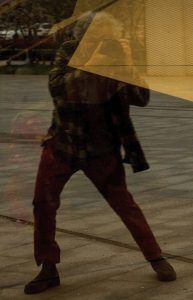Paul Halpern in Aeon:
 Imprisoned in the fortress of Taureau, a tiny thumb of rock off the windswept coast of Brittany, the French revolutionary Louis-Auguste Blanqui gazed toward the stars. He had been locked up for his role in the socialist movement that would lead to the Paris Commune of 1871. As Blanqui looked up at the night sky, he found comfort in the possibility of other worlds. While life on Earth is fleeting, he wrote in Eternity by the Stars(1872), we might take solace in the notion that myriad replicas of our planet are brimming with similar creatures – that all events, he said, ‘that have taken place or that are yet to take place on our globe, before it dies, take place in exactly the same way on its billions of duplicates’. Might certain souls be imprisoned on these faraway worlds, too? Perhaps. But Blanqui held out hope that, through chance mutations, those who are unjustly jailed down here on Earth might there walk free.
Imprisoned in the fortress of Taureau, a tiny thumb of rock off the windswept coast of Brittany, the French revolutionary Louis-Auguste Blanqui gazed toward the stars. He had been locked up for his role in the socialist movement that would lead to the Paris Commune of 1871. As Blanqui looked up at the night sky, he found comfort in the possibility of other worlds. While life on Earth is fleeting, he wrote in Eternity by the Stars(1872), we might take solace in the notion that myriad replicas of our planet are brimming with similar creatures – that all events, he said, ‘that have taken place or that are yet to take place on our globe, before it dies, take place in exactly the same way on its billions of duplicates’. Might certain souls be imprisoned on these faraway worlds, too? Perhaps. But Blanqui held out hope that, through chance mutations, those who are unjustly jailed down here on Earth might there walk free.
Blanqui’s vision of replica worlds might seem fanciful – wishful thinking born of a prolonged confinement, perhaps. Yet it reflects an age-old conundrum that continues to baffle physicists and cosmologists to this day. Does the Universe repeat itself in space or time? Or are we barrelling endlessly forward, never to repeat this moment or arrangement of matter, never to retrace our steps?
More here.
